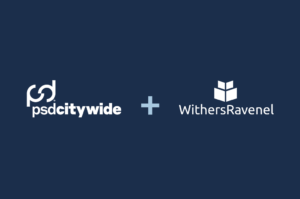Asset Management is an interesting term. Many definitions are published, and most are more confusing than helpful. We have managed our assets and our built environment in our communities for decades. Unfortunately, little attention has been paid over the last several decades to aging infrastructure and the need for upgrades, renewal, and replacement. Our assets exist to provide the basis for service delivery to our residents and visitors. We have, since the inception of our communities, managed assets on a day-to-day basis, with little or no attention paid to the longer term.
Our municipal budget process focuses on current operations with budget extension out just five years. This five-year requirement is often met only because legislated reporting programs require it. Our asset management processes are adding substance and extending the five-year timeline to look ‘down the road’ of what our needs are and identifying asset renewal and associated costs. In doing so, we are educating our politicians about infrastructure needs to retain the ability to provide services within our communities and the on-going costs to do so. This is extremely important, as defining service levels is a Council responsibility.
Asset management is a process which includes the development of asset management plans. Too much emphasis is placed on the “plan” as opposed to the entire on-going process, which includes the plan. Most asset management plans are premised on the six questions originally published by InfraGuide which are:
- What do we own?
- What is it worth?
- What needs to be done?
- When does it need to be done?
- How much will it cost?
While the information provided through this analysis is important and is the basis of most decisions, it is only one chapter of the book and often too technical for municipal Councillors to digest. There is much more to it.
To define the broader range of activities that constitute the asset management process, British Columbia – through Asset Management BC – developed Asset Management for Sustainable Service Delivery: A BC Framework. The framework defines all the components of the process and is the core document that funding agencies in the Province and Union of BC Municipalities (UBCM) expect our communities to follow. In BC, we do not talk about the asset management plan in isolation of the entire process. Our experience tells us that all the components of the process are needed in order to provide and deliver a successful program. Included is the need for an organization-wide understanding and commitment to service delivery and a buy-in to asset management strategies. Of importance, it must be recognized that people are a core asset.
The design of the ‘framework’ is circular, and for a very good reason. The process never ends as long as a community exists and has assets. The processes require periodic monitoring and the components regular annual updating. The annual budget ultimately must be fully linked with the annual asset management strategy update. The framework is currently under review and will shortly be reissued inclusive of climate change, land use planning, natural capital assets, and operations and maintenance.
In late 2016, UBCM – who administers the Gas Tax rebate program – to establish a baseline within the province for asset management, undertook a comprehensive survey of all local governments. The survey was designed to tabulate the state of capacity and knowledge base of all local governments to undertake integrated asset management and to query the status of a number of task-related activities in respect to policy, technical, financial, communications, and implementation of asset management. The survey covered 100 percent of local governments in BC with the questions aligning with the BC framework. The results of the survey entitled ‘Status of Asset Management in British Columbia: Results from the 2016 Gas Tax Fund Asset Management Baseline survey’ is available on the Asset Management BC website. Analysis of the report provides an insight into the direction, tools, and training local governments need to accomplish integrated asset management.
Asset Management BC (AM BC) was created to fill this role with the primary mandate being: knowledge transfer and information sharing. A federal working group on asset management concluded approximately 10 years ago that regional groups were needed to implement asset management in recognition of the many differences in local governments across our vast country and that local governments are formed as a result of provincial and territorial government legislation. AM BC is a ‘Community of Practice’ which is defined as a group of like minded people who gather for knowledge transfer, discussion, and training.
AM BC stands for integrated asset management. A ‘working group’ has existed since the early days to help drive programs and activities to support our communities. The working group consists of representatives of all forums of local governments in BC, including: professional and political associations representing skill sets within our communities, the province, the federal government, Indigenous Affairs, and First Nations. Over the past several years, AM BC has published 22 issues of our newsletter (issued three times per year), organized training – especially NAMS training workshops for municipal staff – and hosted an annual conference. Support and information transfer occurs regularly for communities throughout the province, as does active participation in workshops and conferences. Getting the message out is paramount to furthering sound asset management practices.
To provide long term sustainability to AM BC, this year a formal partnership agreement was established to drive ‘integrated asset management.’ The partnership brings together core groups, all with a strong commitment individually and collectively to asset management. The Partnership Committee includes:
- Union of British Columbia Municipalities
- Province of British Columbia (Ministry of Municipal Affairs & Housing)
- Local Government Management Association of British Columbia
- Local Government Management Association
- Government Finance Officers Association of British Columbia
- Municipal Insurance Association of British Columbia
- Planning Institute of British Columbia
- British Columbia Water & Waste Association
- Public Works Association of British Columbia
- CivicInfo BC
If there was ever an opportunity for innovation and creative thinking, it is in the delivery of asset management programs. Asset management is a very serious, important, and necessary undertaking to ensure physical and financial sustainability within communities. Provision of a range of services is critical to all citizens and visitors who rely on those services – directly or indirectly – for their livelihood and well being. Municipalities have managed assets for decades. It is now crucial to adjust our processes and look down the road at what is ahead and continuously plan for it.
WALLY WELLS is a professional engineer with almost 50 years experience in both the public and private sector. As president of Canadian Public Works Association, Wally works to effectively communicate with governments and senior management within municipalities. As a core member of the federal National Asset Management Group he assisted in publishing the National Framework for Asset Management. In 2008, having relocated to Nanaimo BC, he assisted the Province and various professional associations in developing Asset Management BC, as a community of practice, where he is Executive Director.



